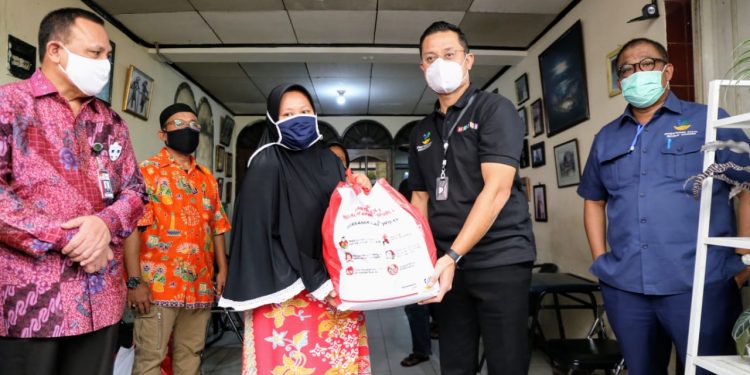The Ministry of Social Affairs (Kemensos) ensures that the distribution of social aid is on target. When compiling a work plan, his party does this by applying measurable and testable data, namely integrated data.
Agus Zainal Arifin, Head of the Social Welfare Data and Information Center (Pusdatin) of the Ministry of Social Affairs, said this was through the Minister of Social Affairs Regulation (Permensos) Number 3 of 2021 concerning Comprehensive Management of Social Welfare Data (DTKS).
This Minister of Social Affairs explains that DTKS is a master data containing data on the need for social welfare services, recipients of aid and social empowerment as well as potential and sources of social welfare. DTKS is the result of the proposed process of data verification, validation and quality assurance control.
“DTKS is used by the government, local governments, and the community as a reference in programs for the poor and the implementation of social welfare,” he said as quoted by the Ministry of Social’s YouTube, Wednesday (6/4/2022).
DTKS is operated by the Social Welfare Center of the Ministry of Social Affairs with the improvement of data by local governments with the application of the Next Generation Social Welfare Information System (SIKSNG) application since 2017.
Based on Law no. 23 of 2014 concerning Regional Government, district/city governments have the authority to collect data and manage district/city-level data.
The data collection and management is in the form of checking the existing DTKS, updating DTKS in their respective areas as well as checking and correcting the NIK data of recipients of social aid programs originating from DTKS.
Efforts to improve data integrity consist of data reform, process improvement and increased inclusion and accountability. Data correction was carried out by unifying 4 databases, namely DTKS, PKH, BPNT and BST into a single individual data, namely the new DTKS.
“Until 2021, DTKS will be reformed on a large scale, in particular with the aim of increasing the integrity of DTKS as an integrated social protection data. This is important to ensure that all data must have a single identity,” he said.
“There should be no duplicate data and data whose identity is not clear. Therefore, the Population Identification Number (NIK) must be matched with the population data managed by the Directorate General of Population and Civil Registration (Dukcapil),” added Agus.
Advances in technology and digitalization in all aspects of life have pushed the Ministry of Social Affairs to improve, including the face of DTKS. The social aid check application from the Ministry of Social Affairs is a form of public service innovation.
The government also provides facilities called Proposals and Rejections. These facilities can be found in the Check Bansos application and can be downloaded via the Google Playstore. After that, those who wish to submit can submit their proposals via the application.
“This application allows beneficiaries to check their status through the account they have created. In the end, DTKS has become a formidable and reliable tool for the Ministry of Social Affairs, especially as a database of recipients and distribution of social aid on target.”









